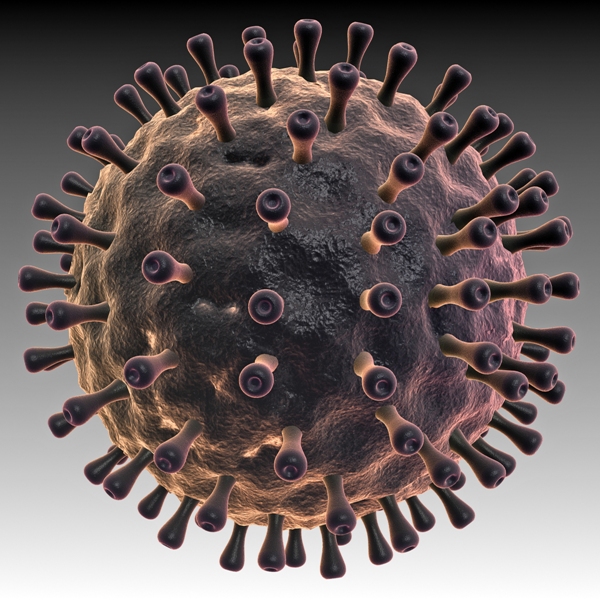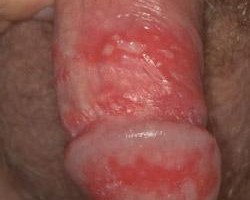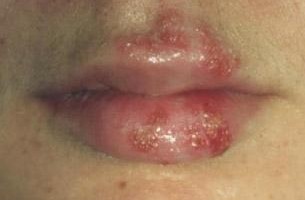Herpes

Herpes is a recurrent skin condition characterized by sores on the mouth or genitals. It is caused by the Herpes Simplex Virus, called HSV-1 and HSV-2. HSV-1 most commonly causes “cold sores” or “fever blisters” on the mouth or face and HSV-2 most commonly causes sores on the genitals. However, the viruses are identical under a microscope and either type can infect the mouth or genitals.
How is it spread?
HSV can be passed on, both sexually and non-sexually, during skin to skin contact by: direct contact with a sore, mouth to genitals, genitals to mouth, genitals to genitals, and mouth to anus. It can also be transmitted when there are no symptoms present. HSV is not transmitted through such causal contact as hugging, shaking hands, sharing food, using the same eating utensils, drinking from the same glass, sitting on public toilets, or touching door knobs.
What are the symptoms?
- Small painful blisters on the sex organs or mouth (see picture)
- Itching or burning before the blisters appear
- Blisters generally last 1-3 weeks, when they do go away, you still have herpes and the blisters may reoccur in the same area with varying frequency
- An outbreak may be preceded by flu-like symptoms


How is it treated?
There are medications available to treat genital herpes infections, preventing or reducing the frequency or recurrent outbreaks. However, herpes cannot be “cured”. The decision to use one treatment over another for genital herpes depends on many factors that must be discussed with your healthcare provider. During an outbreak, keep the infected area as clean and dry as possible. This will help the natural healing processes. Some healthcare providers recommend warm showers in order to cleanse the infected area. Afterwards, towel dry gently, or dry the area with a hair dryer on a low or cool setting. To prevent chaffing, some people also find it helpful to avoid tight-fitting undergarments. Finally, a healthy immune system is important in controlling the virus. Don’t ignore the need for proper nutrition, exercise, and rest.
How can infection be prevented?
Abstinence is the only 100% effective way of preventing HSV infection. However, if you chose to engage in sexual activities and are unsure if you or your partner is possibly infected, consistent and correct use of latex barriers (condoms) can help reduce the risk of transmission. However, only areas covered by condoms, dams or gloves are protected from infection.
If you think that you or someone you know may have been infected with herpes click here for testing sites. If you’re sexually active, sign-up for free STD testing reminders via email, text or both at WeAllTest.com. If We All Test, we can help eliminate syphilis and other STDs in our community.